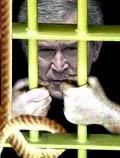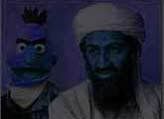| Find |
Saturday, 17 May 2008
Sanchez : just following orders
To hear retired Army Lt. Gen. Ricardo Sanchez explain it, the mistakes of the Iraq war that happened while he was in command there weren't his fault. Not Abu Ghraib, not the birth of the insurgency, not the decision to let rebel cleric Muqtada al Sadr survive.
Sanchez was a soldier, and according to him, a general's job is to give advice. What the civilian leaders decide after that is out of a general's hands.
"It's our responsibility to provide the best judgment we can," Sanchez said in an interview with McClatchy . "But when those decisions are made, if they are not illegal or immoral, civilian control of the military dictates that we comply."
His explanation is part of an ongoing debate within the military, triggered by the Iraq quagmire: What is the role of a soldier?
Sanchez argues that crafting a strategy wasn't his responsibility, even as the top commander in Iraq . That fell to the civilian leaders, such as the secretary of defense and the president.
But as part of the military's emerging counterinsurgency strategy, commanders now are calling their soldiers "strategic corporals." That is, every soldier's decision is part of the broader strategy.
Captains serving in outposts throughout Iraq now are leading fiefdoms alongside local Iraqi leaders, deciding everything from who should protect the community to how local funds should be spent. Commanders now stress to corporals and captains stationed in those outposts that their decisions are part of the broader strategy.
"It's all well and good for a general to say I am not responsible for grand strategy," said retired Army Brig. Gen. Kevin Ryan . "But corporals can be strategic. They can make things happen."
Posted at
12:41
![]()
Post Title: Sanchez : just following orders
![[Zionazis-1.jpg]](https://blogger.googleusercontent.com/img/b/R29vZ2xl/AVvXsEg_x8DOGucgHQmfJJujuK_oYJdxhEnskhQqt-Og7lSk52HeaDQYzW8NQWfdpHmPgj_FJN0jJ3tz1prR1jVZHdHky2HDQxxcs4LVxX0DtAt3fG0sfRr6MDx7Sz8cJNjl0k0RS9TbCjangQ/s1600/Zionazis-1.jpg)




